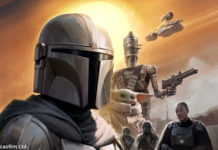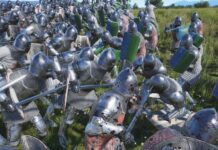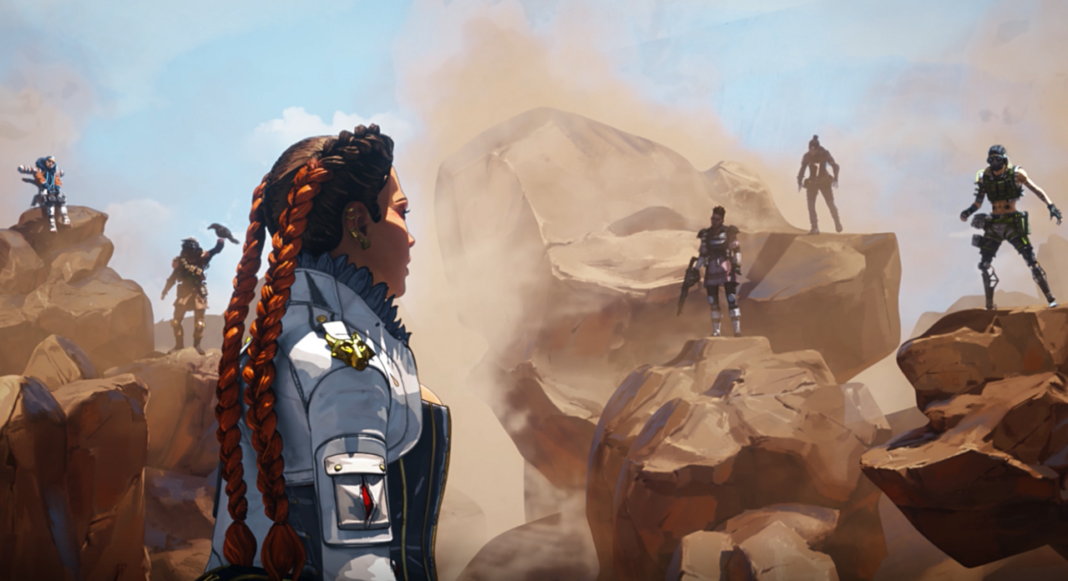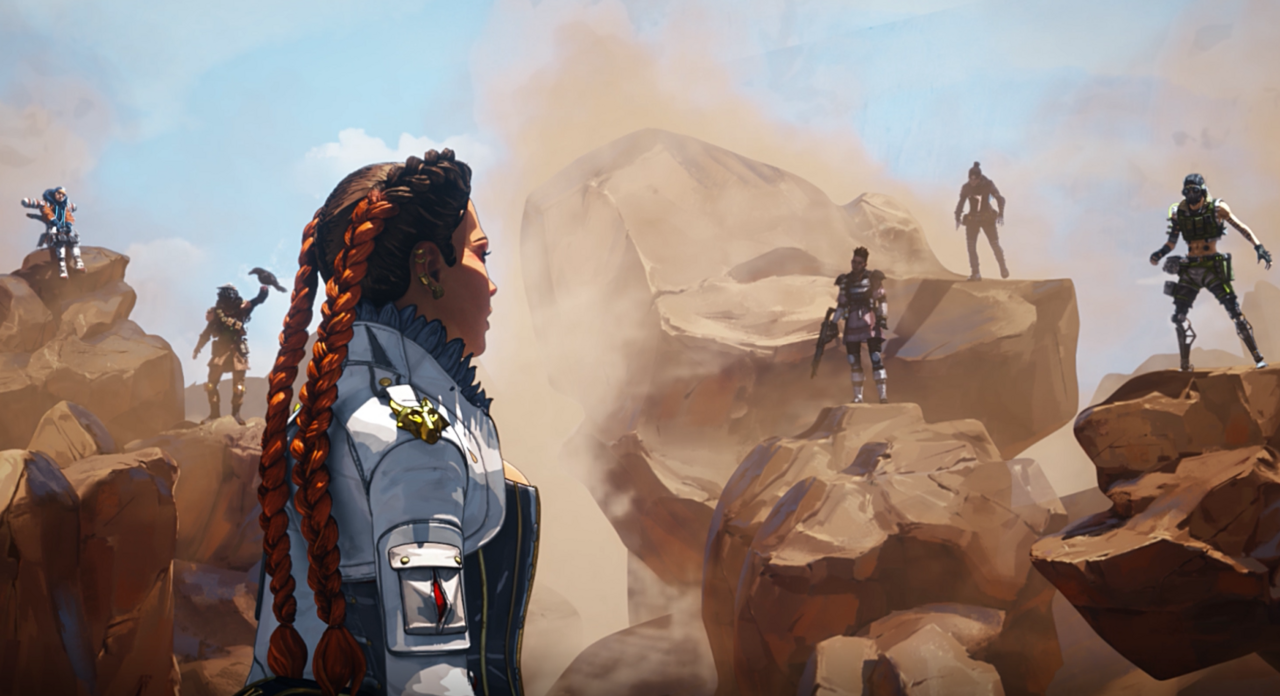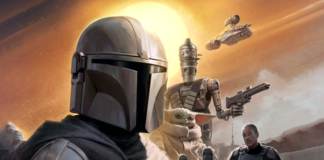It’s wild how far Apex’s reach goes. When one of my friends came back from a trip to Japan, they told me that Apex is big over there and at first I didn’t believe them. I was like, “Apex is big in Japan? Are you sure?”
Ferreira: Yeah, it’s fantastic.
Nikolich: I think our team told us basically 10% of PS4s have Apex on them, which is a lot. Shooters don’t usually do well in Japan and yet somehow, we punch through.
This is kind of a mixture of a looking-back and looking-forward question. The Apex team has released a new legend for every season of the game up to this point, but going into Year 5 the team decided there had to be a shift in priorities to ensure Apex can continue to be the best battle royale out there. How did y’all arrive at that decision?
Nikolich: It really is a change in philosophy and a change in how we approach things. And so when I first started, I got to know everyone interviewing the team and I got to hear a lot of what were the pain points, both from the team, but also the community as well, listening to their feedback. And a big one that came up was just, especially from the legends team, “I wish we had time to revisit our legends because we’ve made so many, we’ve learned so many lessons, but we’re on this cadence of where we can’t adjust them or bring them up.” And so I proposed, “What if we did take a pause? We’re hearing the community, they want all these health updates.” And so [taking a pause] is not just a health update, it’s a way to evolve the game.
And so we’ve committed to this philosophy of tending to the garden, evolving the hobby. A metaphor we always use is, we built this beautiful garden with Apex for the last four years. We add all the plants, put all the rocks in place, and made the river, but we can’t just keep adding new stuff because that means other parts of the garden are rotting and falling apart. And so we’re pulling some weeds out, cutting some things, trimming the hedges, and revitalizing and giving new life to this experience with all the things we’re doing this season.
Legend classes remastered is the spearhead of this, but we’re also touching the Firing Range, we’re touching the modes you play. We pulled the Arenas out. That was one thing that we were like, “Hey, this isn’t working out. It’s not servicing the goal of being a low-stakes place to practice, to get better at the game, and hang out with your friends.” We’re also looking holistically at the game in the coming seasons in how we tell a story and how we introduce new legends. And we’re still adding new content, but it’s now much more deliberate and thoughtful in how we approach it and how it’s adding to the ecosystem and to the garden of Apex.
This far into Apex Legends’ ongoing post-launch development, do y’all have a planned endpoint for the game–either in terms of gameplay or narrative?
Ferreira: That’s not the way that we look at it. I think what’s fundamental to the philosophy that Evan’s been talking about is that our goal is that we don’t want to be just putting out content for the sake of putting out content. One, we want to have an impact on the game, but two, we want to make sure that we haven’t forgotten the game holistically. [We don’t want to] slowly put the game into a state where the only option for us to do the next thing we want to do is to refactor the whole thing and shut the live game down and then launch Apex Legends 2. That’s our anti-vision.
While we don’t have a date in mind–and, to your point, I don’t think anything lives forever–in our minds, Apex is going to continue on for definitely as long as any of us are going to work on it, and then the next people, and next people. We think of it as a never-ending thing, but in order to get there, I think we do have to at least obviously believe in our approach, which is making sure that we are making the changes to the game when they’re ready and when we need those things to land as opposed to just hitting a formula of content that players expect.
Now, part of that, obviously, is also meeting players’ expectations, but I truly believe that, at the end of the day, all of the players that have been with us for over four years play Apex because they love Apex. And so I think, as long as we’re doing what we believe makes Apex better, that’ll be the right thing for players. There are many, many millions of players playing the game and we can’t make everybody happy at all times, and we can’t explain the details and how we make all the decisions we make at all times, but I truly believe that the game is healthier than it ever has been and it’ll continue to do that if we stick to our philosophy and, as Evan says, tend the garden.
Nikolich: Yeah. What sets Apex up for potential success forever at its core is the competitive nature of its gameplay. It is a competition. And games that have stood the test of time–and I’m talking about all games–are competitive games. Chess is one of them, for example. Chess as a game is never going to go away. And so while we are far from being chess, as long as we do our best to keep tending to that [competitive side of players], focusing on the core of the game and building the systems around it to keep growing it and keep it engaging, Apex could last forever.
There could be a point, and I don’t know when the inflection point will be, where the game is just pushed off and then players are playing it because the hobby is so enjoyable and there’s such a colored and deep history to Apex that people just keep playing it. I often talk about how, one day, I want to have somebody teach their kid to play Apex. I played Counter-Strike in college, and that was 20 years ago. And now, people are teaching their kids to play Counter-Strike, teaching their kids to play their first MOBA when they played the original DotA mod on Warcraft III. That’s the vision. That’s what we want to get to. It’s the hobby you want to pass down to your children.
If only briefly, Apex Legends Mobile has been a part of Apex Legends’ legacy as well. Even if one was a mobile game and the other a console/PC game, did the Apex Legends team glean any learnings or inspirations from the mobile experience?
Ferreira: Yeah, we’re constantly looking at that. And like you said, they are fundamentally very different experiences. And I think that, in and of itself, is actually one of the things that we’ve learned through that experience, is that just where do things need to be different, where do things need to be the same or should be the same?
And I think there’s a lot more to learn in that space, but I think this was a great way of trying something new. And I think that’s in line with how we think about Apex as a franchise and just our creative culture at Respawn–we try things out and sometimes it’s not going to work, and then we’ll change it or we’ll put it away. Again, we talked about this before, but you’re seeing that with things like Arenas, you’re seeing that in other areas of the game, inside of Apex and other experiences outside of Apex. We’ll continue to try things out and learn from doing as opposed to sitting on things for too long and it all being hypothetical.
In these four years that Apex has been out, what’s been your favorite part of it? Is it the characters? Is it the maps?
Ferreira: That is a really hard question because, as you said, there’s just been so many things along the way. I think I have two things in my mind that are more categories than they are things, but one thing [I like] is any time that we’ve had the opportunity to surprise players, so whether that was like, “Hey, we’re releasing Forge,” and then, “Guess what, Forge is not actually the new legend.”
That got me so good.
Ferreira: Exactly. We love that kind of stuff. Anytime that either we were surprised by something or we managed to surprise the community has been a highlight over the last four years. And I think, at the end of the day, it’s just times where we are playing the game with the community and just enjoying it just as much as everyone else and get lost in it.
For me, as an example, at least in this last year when we released Gun Run, we were trying to get Gun Run into what we thought it was going to be and then we released it. And I thought–as I do with any of the other content in the live game–that I’d play it and then jump back and forth between Gun Run and the BR. But I ended up not playing anything but Gun Run the entire event–I was surprised that that was the case, but yeah, I’m looking forward to more moments like that.
Nikolich: For me, it’s definitely playing the live game in the community. And since I’ve only been here a year, I’ve been actually getting to know the team by playing the game and playing the live game. And probably those are my biggest memories–forming those bonds and relationships. And that just goes to say how much Apex also has the power to build friendships, to bring people together, and that’s probably my favorite part about it. You see the community that has sprung up around it continues to be excited, and we want to keep providing those opportunities.
I’m super excited for the next crop of players. I’ve been talking about how we’re at four years, so there are people that have been growing up, kids who were maybe eight or nine [when Apex Legends first launched] who are now thinking about maybe approaching their first shooter. They’re finally able to play a more mature game, and getting those new kids, those new players into the system and seeing what their perspective is and seeing how they bend and flex the game is exciting. I’m super excited about the future.
This conversation has been edited for both brevity and readability. To keep on top of all the new changes that are coming to Apex Legends, check out our roundup of everything we know about Apex Legends Season 16.


